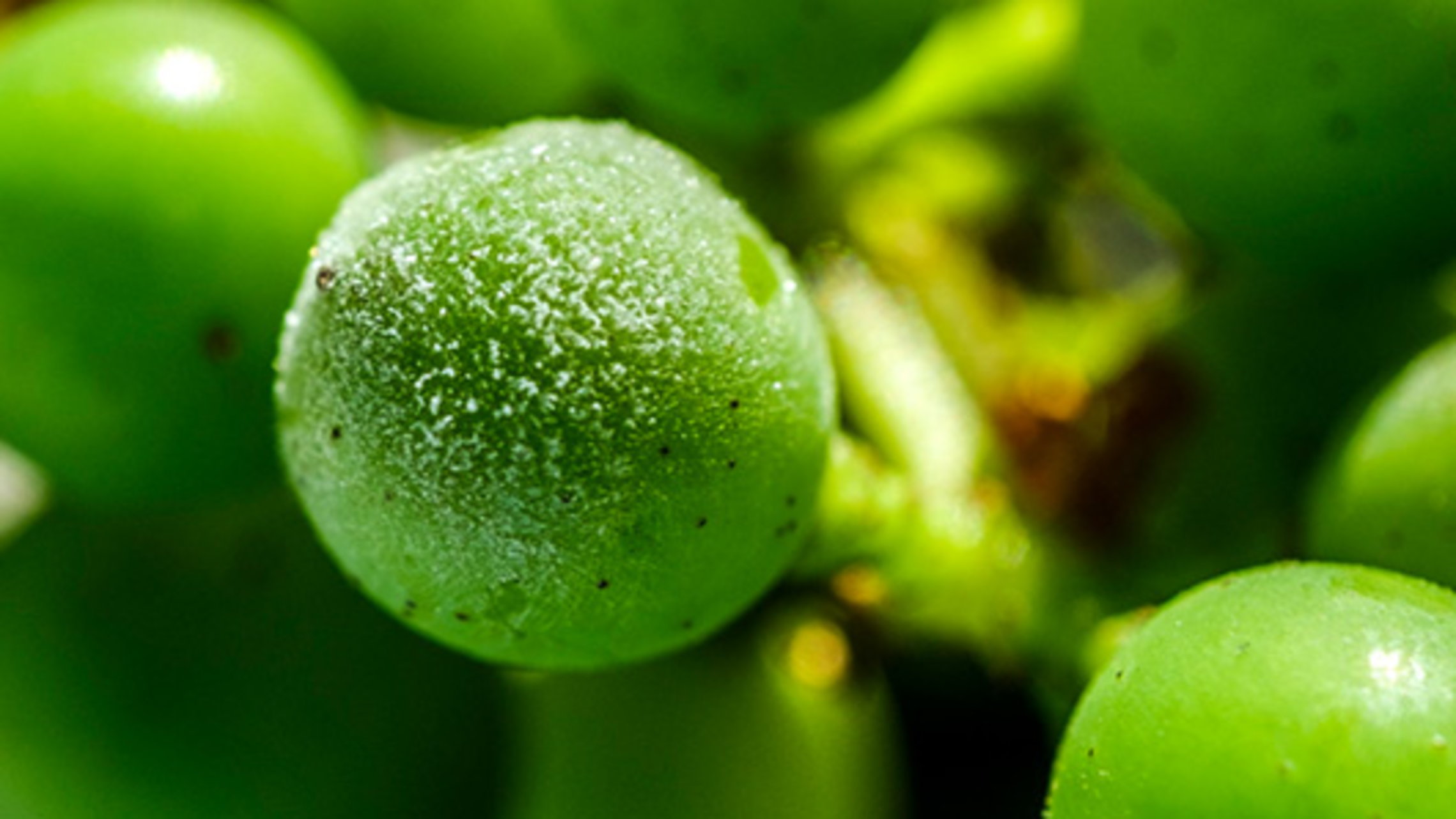Putting together a strong program for powdery mildew

Control throughout the season with your grape crop
In coastal California, grape growers experience varying disease pressure from one season to the next. Not knowing the level of disease pressure or when it will occur, growers should establish a consistent disease management plan to protect their crop from year to year.
In 2018, coastal grape growers experienced issues with powdery mildew. During last year’s growing season, the disease didn’t show up in many vineyards until as late as veraison, when grapes ripen.
“Although disease pressure was low for many growers in 2018, it’s important that they do not become complacent with their disease management programs,” said Kate Walker, BASF Technical Service Representative. “Growers still need to be proactive and put together a strong program for powdery mildew.”
Powdery mildew is one of the first diseases growers think about when implementing their disease management program. Early in the spring, vines often put on a lot of young leaves that are extremely susceptible to infection. As soon as there is shoot growth and a decent amount of leaf tissue, growers should start their powdery mildew programs and spray until veraison.
Control throughout the season
To control this disease, Walker recommends Pristine® fungicide. “For control of powdery mildew, it’s important to rotate chemistries or modes of action (MoA) since growers are making 8 to 10 applications a season,” said Walker. “Pristine fungicide provides built-in resistance management with two MoAs, but it’s still important to use it in rotation with other chemistries.” For activity on powdery mildew, Walker recommends making an application of Pristine fungicide at the high-label rate beginning at bloom in May or June.
Since growers will make multiple powdery mildew applications throughout the season, it’s important to use products with MoAs outside of the common FRAC groups 3, 7 and 11. This makes Vivando® fungicide, which has a unique mode of action, a great rotational partner of Pristine fungicide for control of powdery mildew.
Tips for program success
Along with utilizing the right chemistries at the right time, Walker recommends growers follow these practices for optimal disease control:
- Select strong chemistries with multiple MoAs such as Pristine fungicide.
- Start early and keep intervals tight at the front end of the program to allow for flexibility later in the season if pressure turns out to be lighter.
- Follow cultural practices, such as early-season use of dusting sulfur for powdery mildew control, to keep disease pressure low early in the season while vines are growing rapidly.
Consistent control of powdery mildew is important for preserving the yield and quality of a grape crop. By establishing a strong program for disease control, growers will see lower disease pressure now and in future growing seasons. For more information on how Pristine and Vivando fungicides can protect your grape crop, contact your local BASF representative.
Always read and follow label directions.
Pristine and Vivando are registered trademarks of BASF.
© 2019 BASF Corporation. All rights reserved.
About BASF’s Agricultural Solutions division
With a rapidly growing population, the world is increasingly dependent on our ability to develop and maintain sustainable agriculture and healthy environments. Working with farmers, agricultural professionals, pest management experts and others, it is our role to help make this possible. That’s why we invest in a strong R&D pipeline and broad portfolio, including seeds and traits, chemical and biological crop protection, soil management, plant health, pest control and digital farming. With expert teams in the lab, field, office and in production, we connect innovative thinking and down-to-earth action to create real world ideas that work – for farmers, society and the planet. In 2018, our division generated sales of €6.2 billion. For more information, please visit www.agriculture.basf.com or any of our social media channels.
About BASF
At BASF, we create chemistry for a sustainable future. We combine economic success with environmental protection and social responsibility. The approximately 122,000 employees in the BASF Group work on contributing to the success of our customers in nearly all sectors and almost every country in the world. Our portfolio is organized into six segments: Chemicals, Materials, Industrial Solutions, Surface Technologies, Nutrition & Care and Agricultural Solutions. BASF generated sales of around €63 billion in 2018. BASF shares are traded on the stock exchange in Frankfurt (BAS) and as American Depositary Receipts (BASFY) in the U.S. Further information at www.basf.com.
